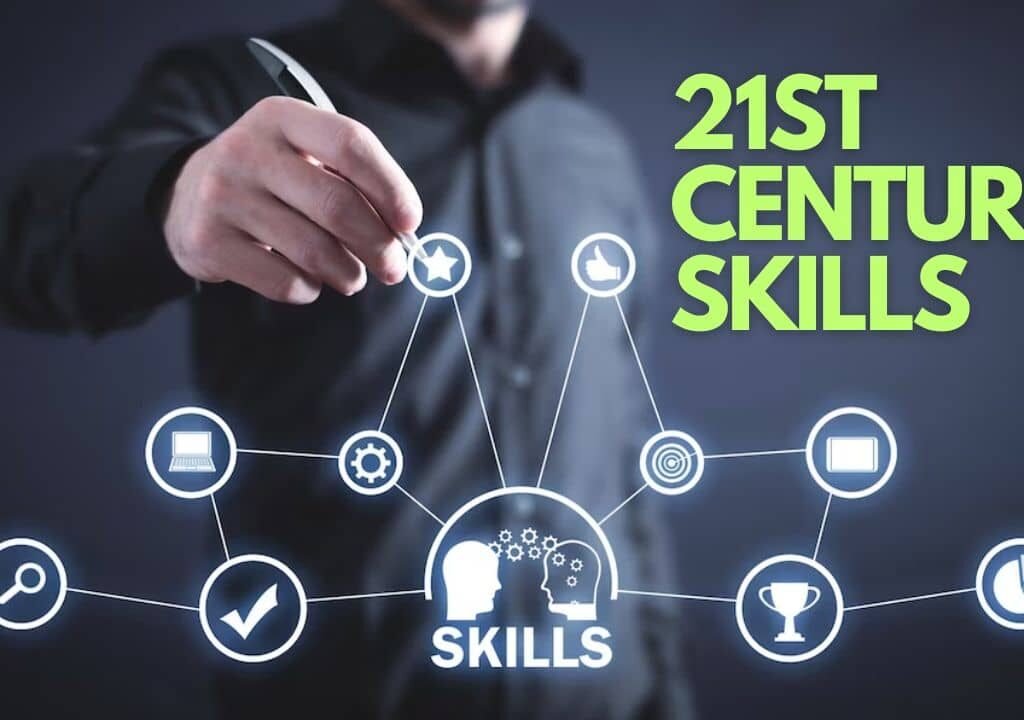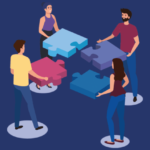21st Century Skills Empowering Education for a Modern World
In today’s fast-paced, ever-evolving world, possessing essential 21st-century skills has become critical for success. The job market, educational needs, and social structures are rapidly changing, and students must equip themselves with the necessary competencies to thrive. These skills, often referred to as 21st-century skills, are essential for navigating the modern world’s complexities and uncertainties. In this article, we will explore the core concepts of 21st-century skills, their significance in education, and how they shape student learning.
What Are 21st Century Skills?
21st-century skills are a set of abilities and competencies that individuals must develop to succeed in the information age. These skills transcend the traditional, academic knowledge that schools have focused on for centuries. They cover a wide range of areas including communication, collaboration, critical thinking, creativity, and technological literacy. The aim is to prepare students not just for academic success but for life beyond the classroom, equipping them with the tools they need to tackle real-world problems and opportunities.
Key Categories of 21st Century Skills
These skills are often divided into three primary categories:
- Learning and Innovation Skills: This includes critical thinking, problem-solving, creativity, and innovation.
- Information, Media, and Technology Skills: These skills focus on technology literacy, information evaluation, and media literacy.
- Life and Career Skills: This emphasizes flexibility, adaptability, leadership, and interpersonal skills.
Understanding and mastering these core areas prepares students for both academic and career success in the modern world.
The Role of 21st Century Skills in Education
21st century skills in education are pivotal in transforming how students learn and how educators teach. The traditional model of education, with its focus on rote memorization and linear learning, is no longer enough to meet the demands of the digital age. To address this gap, education systems around the world are increasingly emphasizing 21st century learning by integrating new teaching approaches that promote critical thinking, collaboration, creativity, and digital literacy.
A Shift in Teaching Methods
In the 21st century classroom, learning is more interactive, with teachers serving as facilitators rather than sole providers of knowledge. This method encourages students to engage in problem-solving activities, collaborate with peers, and explore learning beyond textbooks. By incorporating real-world issues into the Curriculum Development, students are challenged to think critically, which enhances their problem-solving skills.
Moreover, technology has dramatically altered how education is delivered. Digital tools, such as tablets, learning management systems, and virtual reality, play a crucial role in enhancing 21st-century learning skills. Students have greater access to information, enabling them to become self-directed learners. The integration of technology in education not only aids in improving digital literacy but also prepares students for a workforce where such skills are increasingly in demand.
Importance of 21st Century Skills for Students
Today’s students face a future filled with unknowns, from emerging job roles to unpredictable societal changes. 21st century skills for students are crucial for navigating these challenges and ensuring they are well-equipped to handle the demands of both higher education and future employment.
Preparing for the Workforce
The job market is increasingly competitive, with employers seeking candidates who can adapt quickly, think critically, and work collaboratively. Unlike in the past, where specific technical knowledge could secure employment, today’s employers value employees with a blend of hard and soft skills. Proficiency in learning skills in the 21st century, such as communication, teamwork, and problem-solving, can make all the difference in the workplace. These skills are essential across industries, whether in technology, healthcare, business, or the arts.
Lifelong Learning
As industries continue to evolve, so does the need for continuous learning. 21st century skills promote lifelong learning by fostering curiosity, adaptability, and self-motivation. Students who develop these skills are more likely to stay ahead of the curve, continuously upgrading their abilities to remain competitive in a fast-changing global economy.
21st Century Learning Skills: Core Competencies for Success
The modern educational framework emphasizes several key 21st-century learning skills that students must master. These skills align with the 21st century skills framework, which highlights the following essential areas:
1. Critical Thinking and Problem-Solving
Critical thinking is the ability to analyze and evaluate issues in a logical and structured manner. This skill allows students to solve complex problems efficiently by looking at multiple perspectives and making informed decisions. Problem-solving requires creativity, patience, and resilience, all crucial for success in the workplace and everyday life.
2. Collaboration and Communication
Being able to collaborate effectively with others is vital in both academic settings and professional environments. In the 21st century, students must work well in teams, often across cultural and geographical boundaries, to achieve common goals. Strong communication skills are also essential, as they enable individuals to articulate ideas clearly, whether in writing or verbally.
3. Creativity and Innovation
Innovation drives progress in the modern world. Students must harness their creativity to generate original ideas and develop new solutions. Whether through art, technology, or entrepreneurship, creative thinking empowers students to push boundaries and explore new possibilities.
4. Technological Literacy
With the rise of digital technology, being tech-savvy is no longer optional. Students must be proficient in using technology, understanding its impact on society, and knowing how to apply it to solve real-world problems. This includes coding, understanding data, using various software, and staying updated on emerging tech trends.
21st Century Skills Framework: A Holistic Approach
The 21st-century skills framework provides educators and policymakers with a guide to preparing students for the challenges of the modern world. This framework encourages schools to integrate these skills into the curriculum, assessment methods, and learning environments. It emphasizes four key elements:
- Content Knowledge: While critical thinking and collaboration are essential, students still need a strong foundation in core subjects such as math, science, and literacy.
- 21st Century Themes: Topics such as global awareness, financial literacy, and environmental education are vital in helping students understand the world around them.
- Assessment and Standards: Schools must find ways to measure not only academic knowledge but also the mastery of 21st-century skills.
- Professional Development for Educators: Teachers themselves must be equipped with the skills and tools to foster these competencies in students. Ongoing professional development is critical for ensuring that educators can successfully implement 21st-century learning strategies.
Challenges in Implementing 21st Century Learning Skills
While the benefits of 21st-century learning skills are clear, implementing them in classrooms can present challenges. Many schools still rely on traditional teaching methods and may lack the necessary resources, such as technology, funding, or teacher training. In addition, shifting the focus from standardized testing to more holistic assessments can be difficult.
However, as more educational systems recognize the importance of these skills, significant efforts are being made to overcome these obstacles. Governments, organizations, and private institutions are working to develop policies and programs that promote the integration of 21st century skills into education systems worldwide.
The Future of Education: Learning Skills in the 21st Century
The future of education is deeply intertwined with learning skills in the 21st century. As industries evolve and societal challenges become more complex, the skills students acquire today will determine their ability to navigate the future successfully. Educators, parents, and policymakers must continue to advocate for learning environments that foster creativity, critical thinking, collaboration, and technological literacy.
By focusing on these skills, we can ensure that future generations are prepared not only for the workplace but also for meaningful contributions to society.
FAQs
1. What are 21st-century skills, and why are they important?
21st-century skills refer to a set of abilities such as critical thinking, creativity, communication, collaboration, and technological literacy. These skills are important because they prepare students to succeed in an ever-changing global economy by enabling them to think critically, solve complex problems, and adapt to new challenges.
2. How are 21st-century skills integrated into education?
21st-century skills are integrated into education through modern teaching methods that emphasize critical thinking, collaboration, and creativity. Technology plays a crucial role, allowing students to access information, collaborate globally, and learn in more interactive, engaging ways.
3. What is the 21st-century skills framework?
The 21st-century skills framework guides integrating essential skills into education systems. It focuses on content knowledge, incorporating modern themes like global awareness, developing assessment standards, and ensuring professional development for educators to teach these skills effectively.


